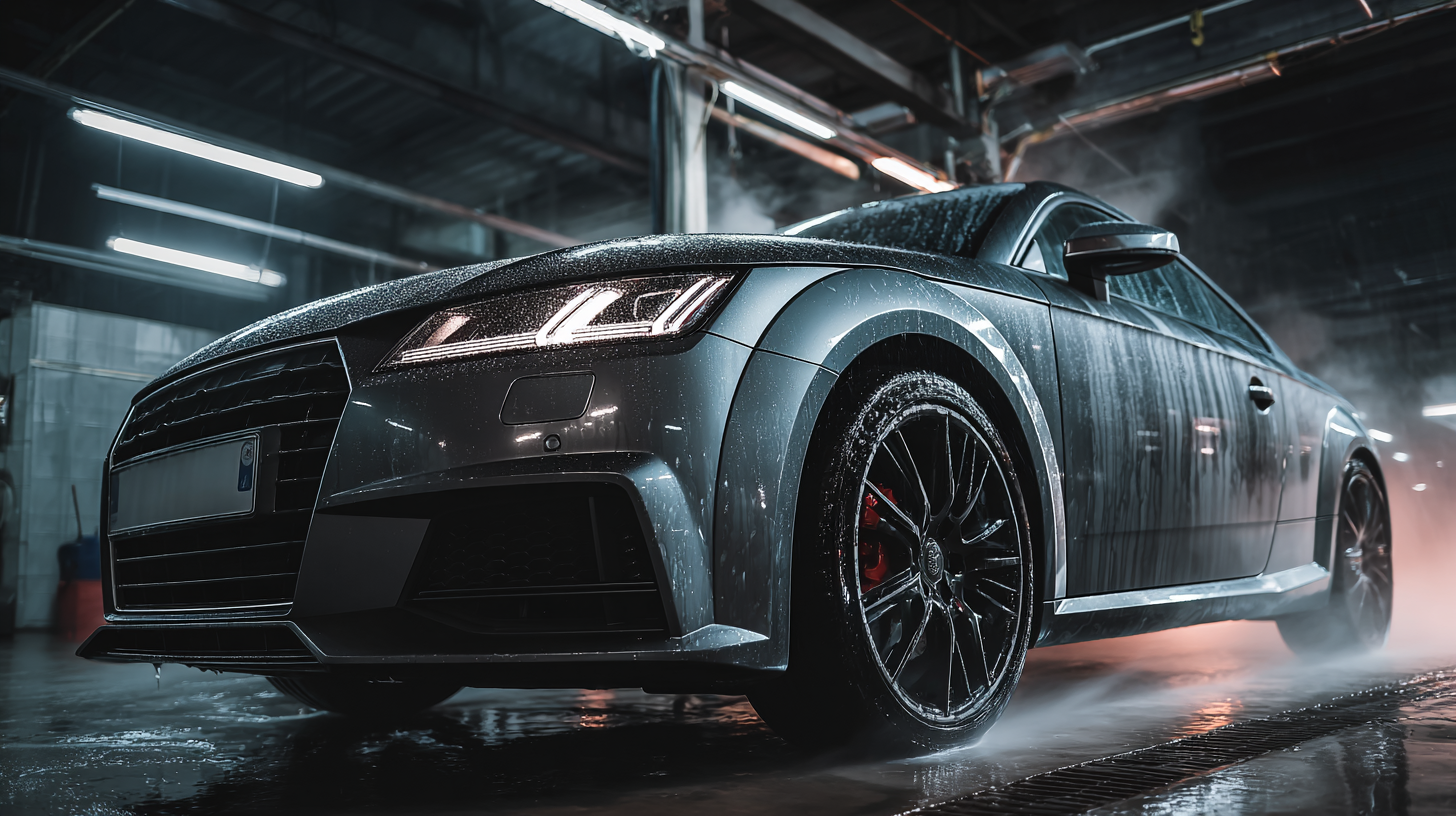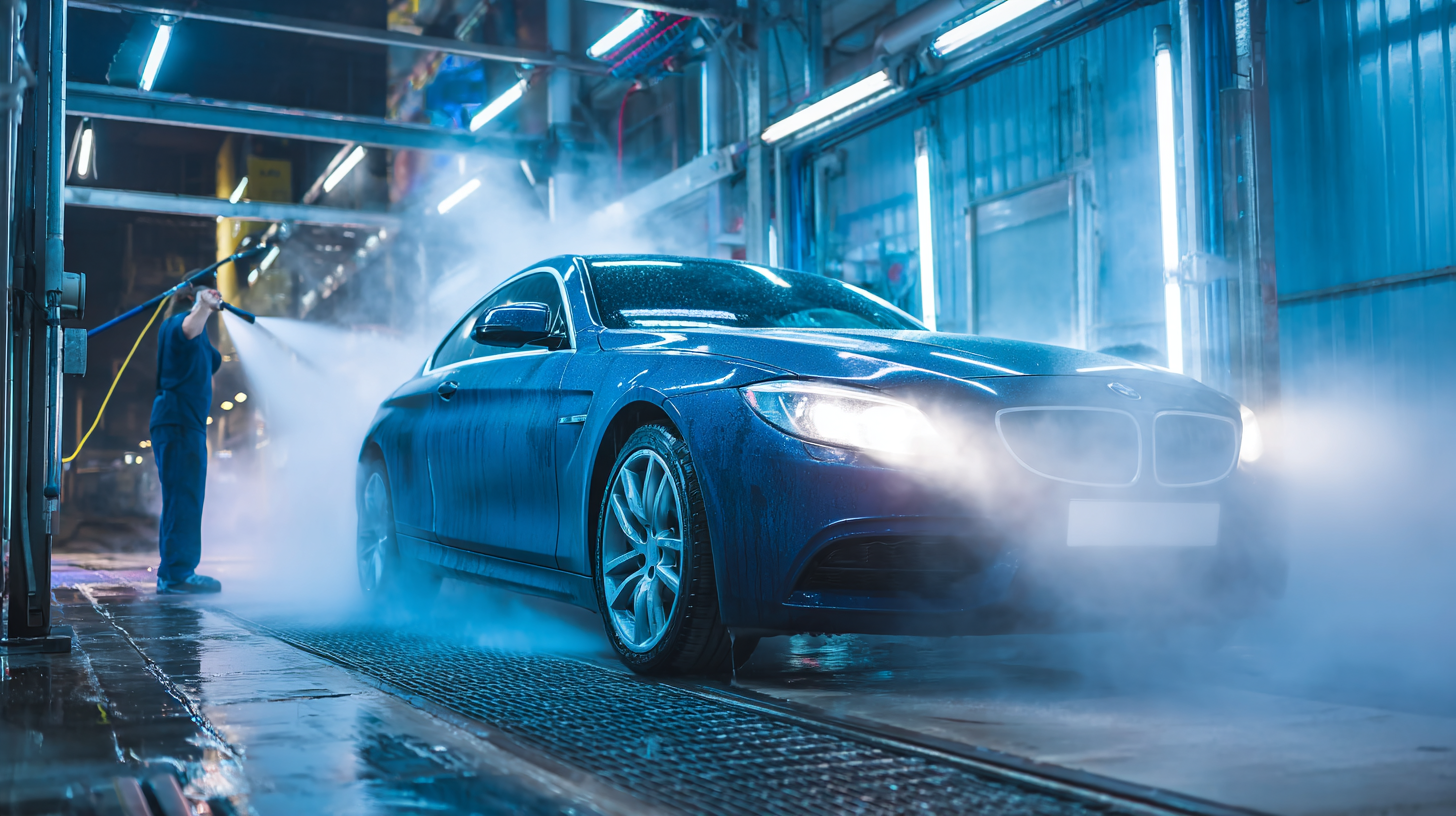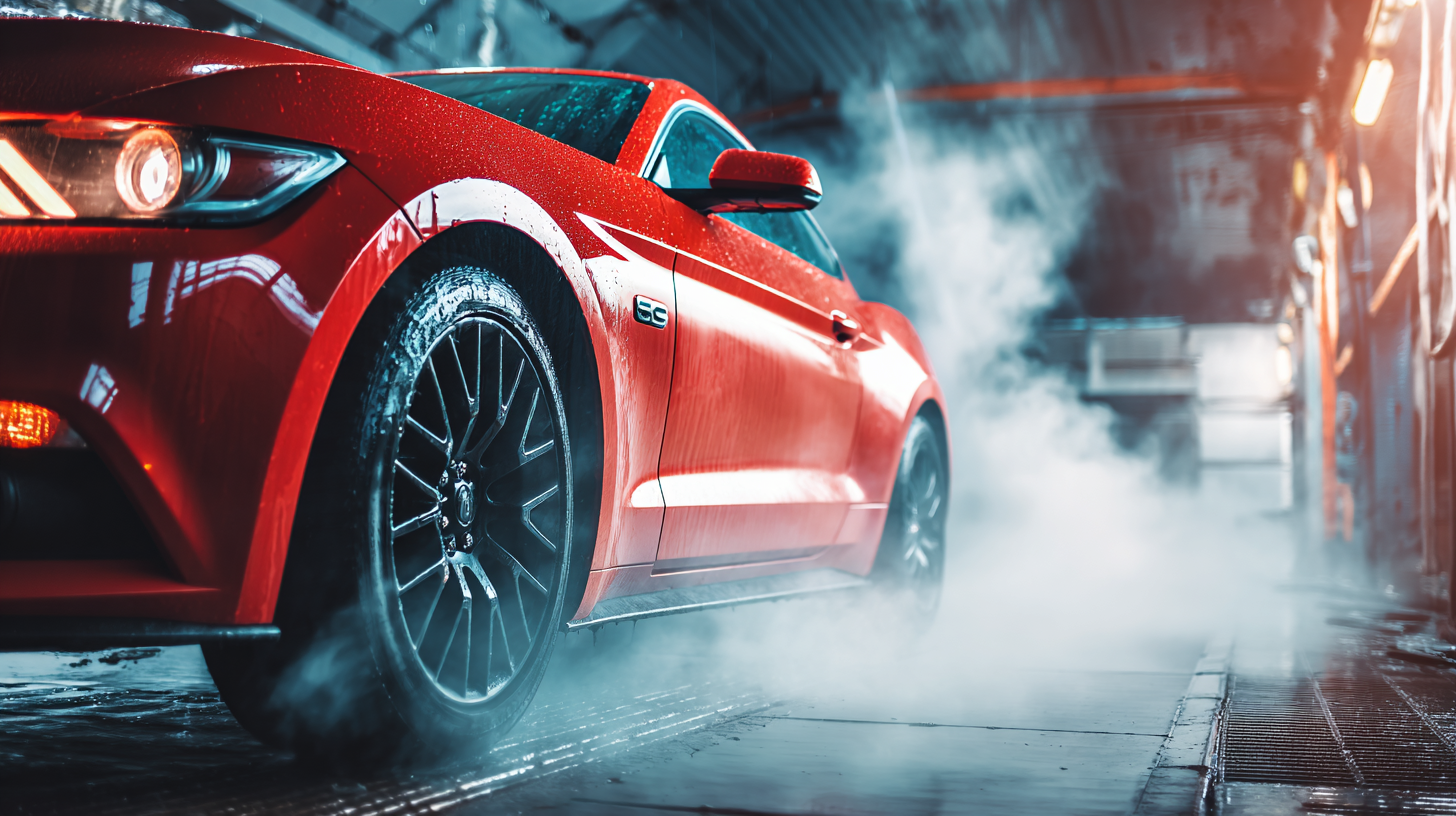Top Strategies for Choosing the Best Pressure Car Wash Machine in 2023
In 2023, the demand for efficient and reliable Pressure Car Wash Machines continues to soar as consumers increasingly prioritize convenience and quality in vehicle maintenance. According to a recent industry report by MarketsandMarkets, the global pressure washer market is projected to reach $2.6 billion by 2025, highlighting a growing trend towards automated cleaning solutions.

As more car wash establishments adopt advanced pressure washing technologies, selecting the right machine becomes crucial. Factors such as after-sales service advantages and repair costs significantly influence the ownership experience. When investing in a Pressure Car Wash Machine, it's essential to consider not only its cleaning power but also the long-term support and maintenance expenses that can impact overall efficiency and customer satisfaction.
This blog will delve into the top strategies for making an informed choice in today's evolving marketplace, ensuring both businesses and individuals maximize their investment.
Understanding the Different Types of Pressure Car Wash Machines
When exploring the world of pressure car wash machines, it's essential to understand the different types available on the market. The most common types include electric, gas, and hot water pressure washers, each catering to diverse cleaning needs. Electric pressure washers are typically lightweight and suited for small jobs, making them an excellent choice for home use. Gas-powered models, on the other hand, provide more power and are ideal for tackling larger projects or heavy-duty cleaning tasks.
When selecting a pressure car wash machine, consider the specific tasks you'll be undertaking. Higher PSI (pounds per square inch) ratings indicate more cleaning power, which is crucial for removing stubborn dirt and grime. Additionally, think about the flow rate in GPM (gallons per minute) — a higher flow rate means quicker cleaning.
Tips: Always opt for machines with adjustable pressure settings to avoid damaging more delicate surfaces. Moreover, look for pressure washers that come with various nozzle attachments to enhance versatility and effectiveness during cleaning. Make sure to check for warranties and customer reviews to ensure you are investing in a reliable and durable product.
Key Features to Look for in a Quality Pressure Car Wash Machine
When selecting the best pressure car wash machine in 2023, it's crucial to focus on key features that ensure efficiency and effectiveness. One of the primary aspects to consider is the pressure rating, measured in PSI (pounds per square inch). A higher PSI means more cleaning power, making it easier to remove stubborn dirt and grime from your vehicle's surface. Additionally, look for adjustable pressure settings, which allow you to tailor the wash depending on the surface being cleaned, preventing potential damage to delicate finishes.
Another important feature is the water flow rate, often measured in GPM (gallons per minute). A higher GPM rating will enable faster cleaning, which is particularly beneficial if you wash multiple vehicles regularly. Consider models equipped with a detergent injection system as well; this feature enhances cleaning by allowing you to apply soap while washing, resulting in a thorough clean with minimal effort.
Lastly, portability and storage options should not be overlooked. A lightweight design with wheels makes it easier to maneuver around your garage or driveway, while onboard storage for hoses and nozzles helps keep everything organized and accessible. Investing time in finding the right balance of these features will ensure that your pressure car wash machine meets your needs effectively.

The Importance of PSI and GPM Ratings for Pressure Washers
When choosing the best pressure car wash machine in 2023, understanding the significance of PSI (Pounds per Square Inch) and GPM (Gallons per Minute) ratings is essential. PSI measures the pressure at which water is expelled from the nozzle, directly impacting the machine's cleaning power. A higher PSI is beneficial for tough stains and grime, but it’s crucial to choose a machine with adequate pressure that won’t damage your vehicle’s paint.
In addition to PSI, GPM is equally important as it determines the water flow rate. A higher GPM means more water is used, which can cut down on washing time and improve overall cleaning efficiency. For car washing, a balance between PSI and GPM often leads to the best results. Ideally, a pressure washer with around 1400-1900 PSI and 1.4-1.6 GPM is suitable for most vehicles.
**Tips:** When selecting a pressure washer, always consider the surface you’ll be cleaning. For delicate surfaces like vehicles, a lower PSI is advisable to avoid damage. Additionally, look for machines equipped with adjustable nozzles to customize the spray pattern according to specific cleaning needs. Don't forget to check customer reviews for insights into the performance and reliability of the models you’re considering.

Benefits of Electric vs. Gas Pressure Car Wash Machines
When considering a pressure car wash machine, one of the key decisions revolves around the choice between electric and gas models. Electric pressure washers are increasingly popular due to their eco-friendliness and efficiency. They operate quietly and produce zero emissions, making them a great option for residential use, especially in urban areas where noise and air pollution are concerns. Moreover, advancements in electric technology, like solid-state batteries, are pushing performance boundaries, providing users with greater power and durability without the drawbacks of traditional gas engines.
On the other hand, gas pressure washers continue to be favored for heavy-duty cleaning tasks due to their superior power and mobility. They typically generate higher pressure levels and can run for extended periods without needing a recharge, which is ideal for larger jobs. However, these machines come with emissions and noise that might be less appealing in suburban environments. As the world transitions toward more sustainable energy solutions, both types of pressure washers are evolving, offering users a range of options that suit their cleaning needs and simplify their environmental footprints.
Top Strategies for Choosing the Best Pressure Car Wash Machine in 2023 - Benefits of Electric vs. Gas Pressure Car Wash Machines
| Feature | Electric Pressure Washers | Gas Pressure Washers |
|---|---|---|
| Power Source | Electricity | Gasoline |
| Pressure Output (PSI) | 1300 - 3000 PSI | 2500 - 4000 PSI |
| Noise Level | Low | High |
| Weight | Lightweight | Heavy |
| Ease of Use | Very Easy | Requires More Effort |
| Cost | Moderate | Higher |
| Environmental Impact | Lower | Higher |
| Maintenance | Low | Regular Maintenance Required |
| Applications | Home Use and Light Jobs | Commercial and Heavy-Duty Jobs |
Cost-Effective Maintenance Tips for Pressure Wash Machines
When selecting a pressure car wash machine, cost-effective maintenance is crucial for ensuring longevity and optimal performance. According to a report by IBISWorld, the car wash equipment industry is projected to grow steadily, emphasizing the importance of maintaining these machines to avoid unexpected expenses. Regular maintenance not only extends the lifespan of your equipment but can also enhance its efficiency, leading to substantial savings on energy consumption. For instance, machines that are properly maintained can operate at up to 25% greater efficiency, as highlighted in a study by the Pressure Washer Manufacturers Association.
Implementing routine checks, including cleaning filters and nozzles, can prevent common malfunctions. Research indicates that over 30% of pressure washing equipment failures are attributed to neglect, leading to costly repairs and downtime. Additionally, utilizing eco-friendly detergents can minimize wear and tear on the system while also being safer for the environment. By incorporating these tips into regular maintenance schedules, car wash operators can not only reduce operational costs but also maintain a high standard of service for their customers.